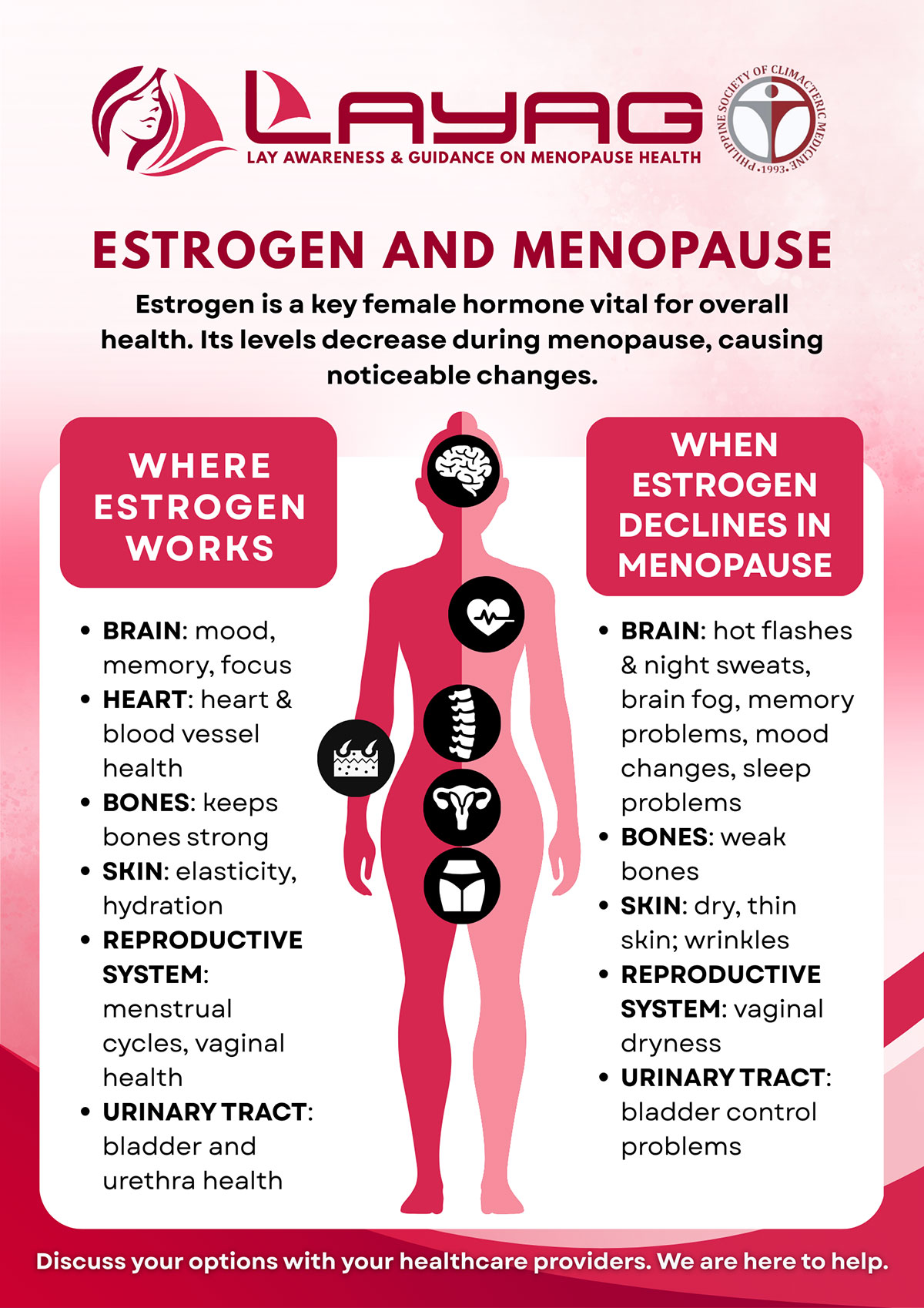Estrogen and Menopause: Understanding the Connection
Estrogen is one of the main female hormones, and it plays a big role in keeping many parts of your body healthy. During menopause, your estrogen levels drop, which can lead to noticeable changes. Understanding how estrogen works – and what happens when it declines – can help you make informed decisions about your health.
Estrogen’s Role in the Body
Estrogen isn’t just about periods and pregnancy – it has effects all over your body:
- Reproductive system:Regulates menstrual cycles and supports vaginal and uterine health.
- Bones:Helps maintain bone strength and density.
- Heart and blood vessels:Supports healthy cholesterol levels and blood flow.
- Brain:Influences mood, memory, and mental sharpness.
- Skin and hair:Keeps skin elastic, hydrated, and supports healthy hair growth.
- Urinary tract:Helps maintain bladder and urethral health.
What Happens in Menopause
When you reach menopause – defined as 12 months without a menstrual period – your ovaries produce much less estrogen. This drop can cause various symptoms, often starting during perimenopause, the years leading up to menopause.
Common Symptoms of Estrogen Deficiency
- Hot flashes and night sweats– Sudden feelings of heat, often with sweating and flushing.
- Vaginal dryness and discomfort– Can make intimacy uncomfortable and increase risk of infections.
- Mood changes– Irritability, anxiety, or low mood.
- Sleep problems– Trouble falling or staying asleep.
- Memory or focus issues– Difficulty concentrating or remembering things.
- Bone loss– Higher risk of osteoporosis and fractures over time.
- Changes in skin and hair– Dryness, thinning, or loss of elasticity.
Why This Matters
Estrogen decline is a normal part of aging, but its effects on your health can be managed. Lifestyle habits like regular exercise, a healthy diet, and not smoking help protect your heart and bones. In some cases, your doctor may recommend treatments such as hormone therapy, especially if symptoms affect your quality of life.
Menopause is a new chapter – not the end of your well-being. With knowledge and the right support, you can stay strong, healthy, and active through this transition.



